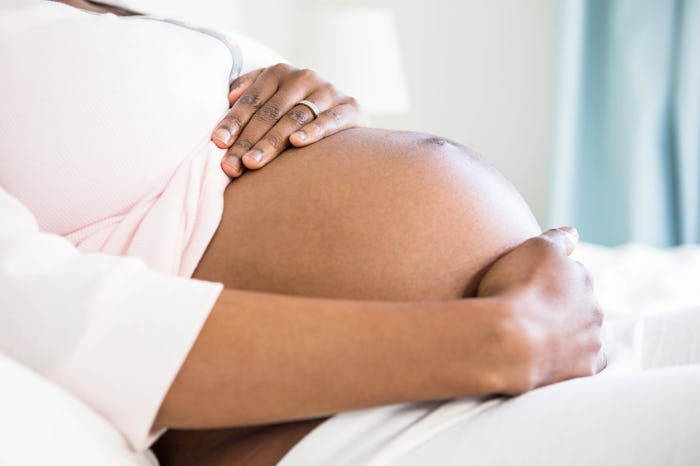Life
Lawmakers Pass Bill To Professionalize Doulas In Hopes Of Improving Maternal Health
New York Sen. Jessica Ramos, a Democrat, recently sponsored a bill to professionalize doulas, in an effort to "ensure all birth methods are safe," she wrote on Twitter. And the New York State Senate passed the bill creating "certified doulas" on Tuesday, a move that Ramos believes will create better maternal health outcomes overall and will expand access to this important service. In an interview with Romper, Sen. Ramos spoke about these goals and her motivation behind sponsoring the bill.
The New York State Senate unanimously passed Ramos' bill Tuesday, meaning that if Gov. Andrew Cuomo signs the bill into law, only "those certified may provide doula services," according to the New York State Senate's website. Doula services, according to the legislation, are "defined as continuous emotional and physical support provided by a certified doula throughout labor and birth, and intermittently during the prenatal and postpartum periods."
To become certified, interested doulas will have to fill out an application and pay a $40 fee, provide evidence of "educational preparation," and pass a certification exam, according to bill's provisions. Ramos is hopeful that these standards will ensure better maternal health outcomes across the board, especially where it concerns people of color.
"We know the role doulas play in making labor and birth easier for women, making them more comfortable, helping them manage their pain, and I think as someone who gave birth twice without one, I wish I had," she tells Romper in a phone call. "I'm really proud that, hopefully, by ensuring that we can certify doulas, more people will feel encouraged to explore this profession which is a big win for patient care and will hopefully will result in more healthy and beautiful babies and mommies."
New York ranks 30th out of 50 states for maternal death rates and has seen a 60 percent increase in maternal mortality over the past decade, as 2020 presidential hopeful Sen. Kirsten Gillibrand noted on her campaign website, so it's clear this is an issue that needs to be addressed. One way to do so is by expanding access to exceptional health care services, a goal Ramos says can be achieved by professionalizing doulas.
"I want to create access to this service. Many communities don't know that doulas are available, that they're even an option," Ramos tells Romper. "We want to ensure that doulas become part of the norm for maternal care and we want them included in the birth plan. By professionalizing, we will begin to see a burgeoning industry that will surely see a betterment for everyone involved."
Ramos can speak to this issue firsthand, as she wishes she had a doula to shepherd her through the births of her two sons. Ramos says she felt "pressured" to take epidurals and emphasizes that she didn't have support beyond her "immediate family." Her experience was in direct contrast to her best friend, who had the support of a doula.
"I had heard stories from my best friend about how her doula was able to advocate very effectively for her because the doula understood what did and didn't work for my friend," Ramos explains. "And that is something hat shouldn't be a luxury for women when they're giving birth. Doulas should be a service that is very much entrenched in the values of good health care."
As for critics of the bill, some argue that state regulations will interfere with a doula's ability to meet the specific needs of their clients. "If the state were given the authority to regulate and certify doulas this would inherently alter the very fiber of what doula support means," one critic penned on the New York State Senate's website. "At the core of a doula’s efficacy is that our role and agenda is tied solely to the birthing person’s agenda."
Ramos stresses that the "good thing about democracy is that we can always improve upon our laws." Despite the criticism from some constituents, she's confident that in professionalizing doulas, the state will "make it easier to do the job" and thus "improve the quality of care."
"This is the beginning," she tells Romper. "We hope to continue to work with the doula community."
The final piece to this bill is Cuomo's signature, which Ramos is confident about. "I think that Gov. Cuomo understands how important it is we address our mortality rates, especially in communities color," she says. "We know how high the statistics are for black women, particularly when it comes to these specific health outcomes, and I'm sure he'll see how necessary it is to turn this bill into a law."
If Cuomo signs the bill, it will go into effect 90 days after its signage. It remains to be seen how this bill will affect maternal health outcomes if it does become a law, but it's clear lawmakers like Ramos are making an effort to address the concerning maternal mortality rates.
